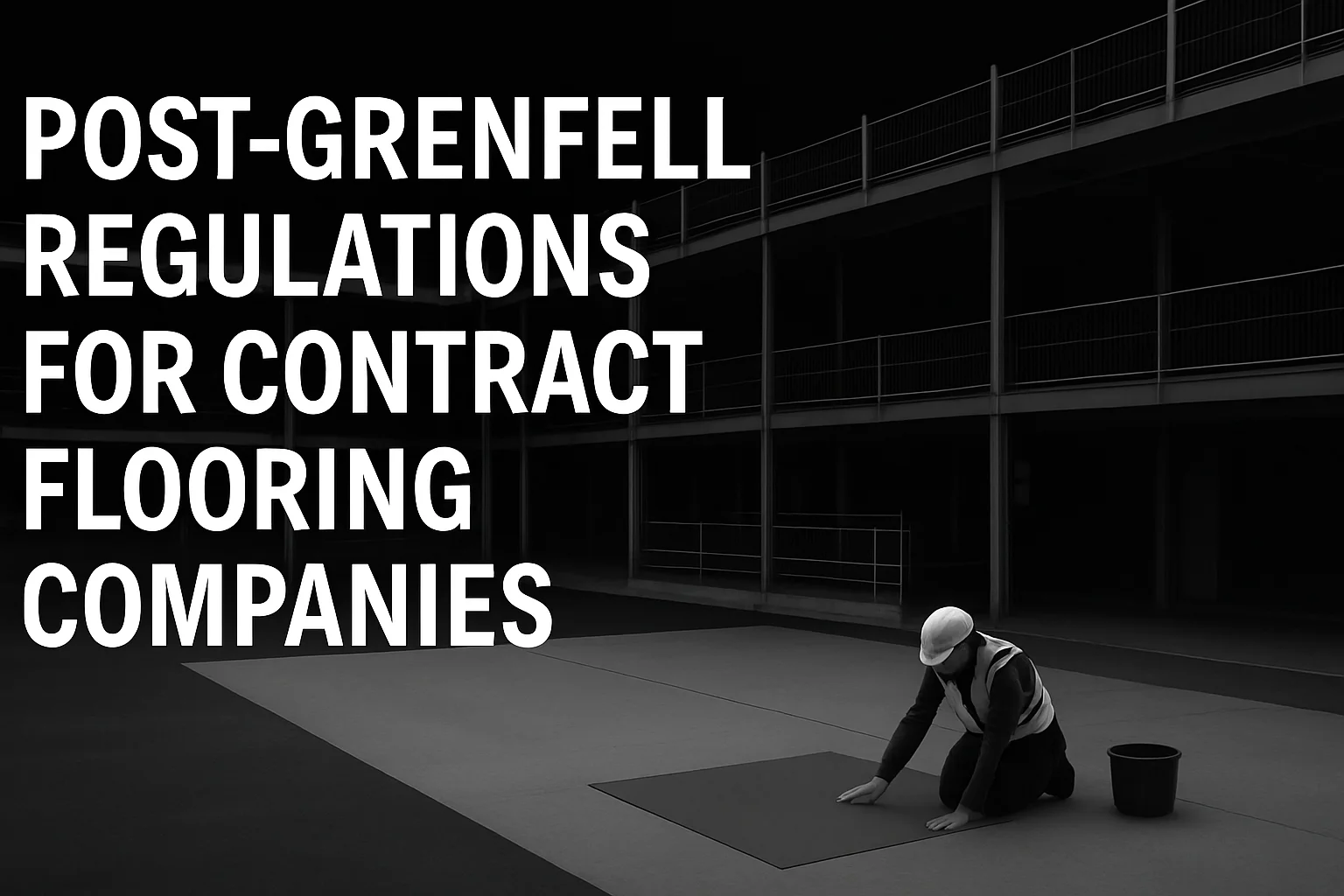The Grenfell Tower tragedy in 2017 was a turning point for the UK construction industry. In response, the government introduced sweeping reforms aimed at tightening building safety and improving accountability across every trade involved in construction, including flooring.
While much of the attention has focused on cladding and fire systems, the new rules mark a wider cultural shift. Every contractor now has a clearer role when it comes to safety and compliance. For flooring firms, keeping up with these changes is not just about compliance, it's key to staying competitive.
What's Changed in Construction Regulation?
Here's a high-level look at the new framework shaping how buildings are planned, built and handed over:
Building Safety Regulator (BSR)
Now oversees safety standards for higher-risk buildings over 18 metres.
Three-Stage Gateway Process
Checks building safety at design, construction and sign-off stages.
Legally Defined Dutyholder Roles
Assign specific responsibilities to clients, designers and contractors.
The Golden Thread
Digital record of building safety information that must be accurate and up to date throughout the building's life.
Although some of these apply mainly to high-rise housing, the mindset is filtering through every part of the industry. That includes specialist trades like flooring.
What This Means For Flooring Companies
While you may not be installing fire doors or cladding, the impact on your business is real. Here's how you may be affected:
1. Competence Is Under the Spotlight
Clients and main contractors are now under pressure to prove that everyone working on site is competent to carry out their role. That means flooring installers and supervisors need the right training and accreditations, especially when working on sensitive or high-risk projects.
It's not just about qualifications. Experience, practical knowledge, and upskilling all play a part.
2. Better Records, Fewer Problems
Jobs now need to be documented more clearly. Clients want traceability on materials, installation methods and sign-offs. Good record-keeping helps if issues arise later and can protect your team from blame.
Flooring contractors should be ready to contribute to the project's overall safety documentation and digital records.
3. You Might Be Pulled In Earlier
Traditionally, flooring is one of the last things to go in. But if you're working on a regulated project, you might need to engage long before installation begins.
Material specs, programme timings and moisture testing may all be discussed earlier in the build process. Getting involved early means fewer last-minute issues later on.
4. Price Alone Won't Win Work
There's a stronger focus now on quality, safety and long-term performance. That could change how jobs are priced and awarded.
Flooring products need to meet minimum standards and installers may be required to prove compliance with approved methods. Cheap materials and cost-cutting are more likely to be challenged.
5. Greater Accountability on Site
Everyone on the project team shares responsibility for getting it right. If something isn't safe or doesn't look right, flooring contractors are expected to speak up.
Site conditions, poor programming or last-minute changes can affect the quality and safety of your work. Raising these early protects everyone involved.
How to Stay Compliant and Ahead of the Curve
Taking a few proactive steps can make a big difference:
Invest in training for all staff, from fitters to project leads
Work with trusted suppliers who can provide materials with full certification and traceability
Strengthen your internal processes for quality control and documentation
Build stronger relationships with clients and contractors to stay involved from earlier stages
Don't ignore unsafe conditions. If sequencing or access is poor, raise it immediately
Looking Ahead
Although many of the headline reforms apply to high-rise buildings, the whole construction industry is tightening up. Standards are rising, and expectations around safety, documentation and accountability are here to stay.
For contract flooring companies, this shift brings new responsibilities, but also new chances to lead from the front. Businesses that focus on quality, competence and professionalism will be better placed to win work, reduce risk and build strong, long-term client relationships in a more accountable construction industry.
Navigate Post-Grenfell Compliance with Expert Support
The regulatory landscape is complex and evolving. MC Growth Consultancy can help your contract flooring business understand these changes, implement compliance frameworks, and position your company as a trusted partner in the new construction environment.

